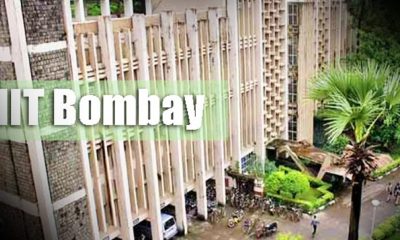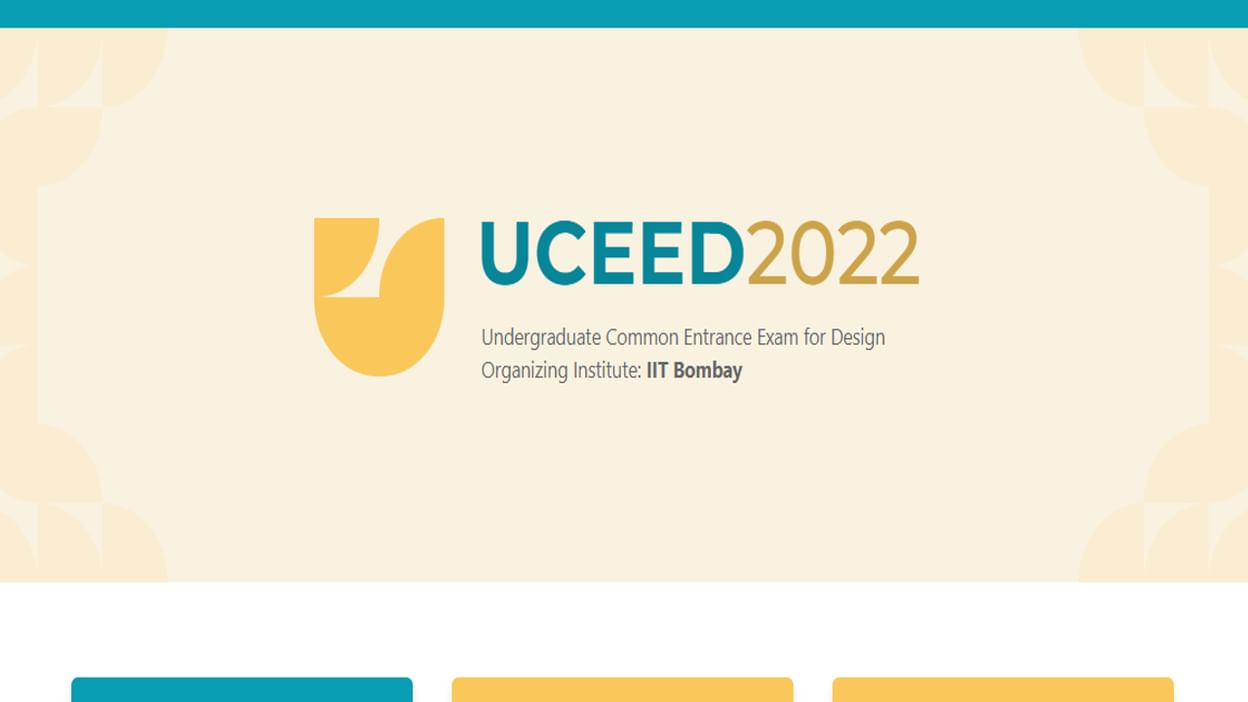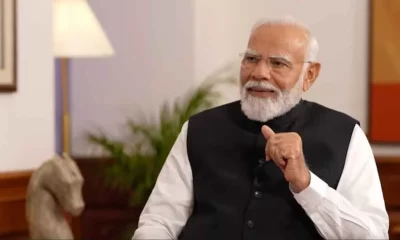India News
Govt names six universities Institutions of Eminence, proposed Jio Institute among them
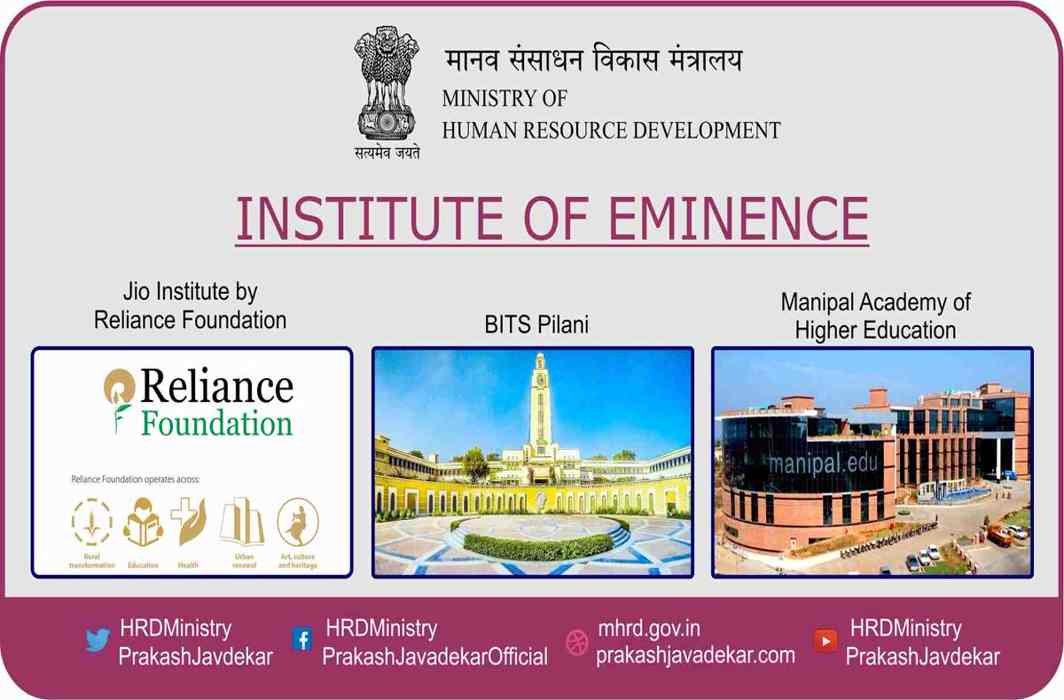
The government has named three private and three public universities as “Institutions of Eminence” which will enjoy greater autonomy, can decide fee structure, have flexible course durations and structure to strive to raise their standards as world-class institutions in the coming years.
The list includes IIT Delhi, IIT Bombay and Indian Institute of Science (IISc) Bengaluru among the public universities and BITS Pilani, Manipal Academy of Higher Education and the Jio Institute of the Reliance Foundation.
The Reliance Foundation’s Jio Institute is yet to be launched, and its inclusion sparked a controversy and invited widespread criticism. Facing questions and attacks from the Congress, The Ministry for Human Resource Development (HRD Ministry) responded with a tweet, accusing its critics of a misinformation campaign. It pointed out that the status can be bestowed on institutes that make the cut under the greenfield category for new or proposed institutions, provided the sponsoring organisation submits a convincing perspective plan for 15 years.
On Monday, Jio trended on Twitter, with many tagging Education Minister Prakash Javadekar, asking him about the institute’s location and credentials. Besides Jio, the list includes BITS Pilani, Manipal Academy of Higher Education, Indian Institute of Science (IISc), Bengaluru, and the Indian Institutes of Technology in Mumbai and Delhi.
The Congress tweeted, “The BJP Govt favours Mukesh & Nita Ambani yet again. The illusionary JIO Institute which is yet to see the light of day has been declared as an ’eminent’ institute. The Govt needs to clarify the basis of classification for granting such a status. #SuitBo…”
The UGC said the Jio Institute was selected under rules for greenfield institutions. According to officials, 11 such institutions had applied for the Institute of Eminence and Jio was selected from among them.
Ministry of HRD tweeted: In response to some misinformation campaign in social media regarding “Institutes of Eminence”, please find herewith clarifications on commonly raised questions #InstituteofEminence
In response to some misinformation campaign in social media regarding “Institutes of Eminence”, please find herewith clarifications on commonly raised questions #InstituteofEminence pic.twitter.com/K6IB5ILpfb
— Ministry of HRD (@HRDMinistry) July 9, 2018
Earlier on Monday, making the announcement about Institutes of Eminence in a series of tweets, Mr Javadekar said, “The #InstituteofEminence are important for the country. We have 800 univ, but not a single university in top 100 or even 200 in the world ranking. Today’s decision will help achieve this.”
The institutes, he said, have been selected by an experts’ panel. IIT Bombay and Delhi, he said, will receive government funding, “because public sector institutes which are granted status of Institutes of Eminence will get govt grant of Rs. 1000 crore in next five years”.
The Union Cabinet had approved UGC’s ‘Institutions of Eminence Deemed to be Universities Regulations 2017’, in August, 2017. The regulations are aimed at creating an enabling architecture for 10 public and 10 private institutions to emerge as world-class institutions, since the country has little representation in the international ranking of educational institutions, reported The Indian Express (IE).
Only higher education institutions currently placed in the top 500 of global rankings or top 50 of the National Institutional Ranking Framework (NIRF) are eligible to apply for the eminence tag. The private IoEs can also come up as greenfield ventures, provided the sponsoring organisation submits a convincing perspective plan for 15 years.
The IoEs are proposed to have greater autonomy compared to other higher education institutions. For instance, they will be free to decide their fee for domestic and foreign students, and have a flexible course duration and structure.
Their academic collaborations with foreign institutions will be exempt from approvals of government or UGC except institutions based on a list of negative countries prepared by the External Affairs and Home ministries.
Once identified, the target for the IoEs would be to break into the top 500 in at least one internationally reputed ranking framework in 10 years and come up in the top 100 over time.
The 10 government institutions, in addition to autonomy, will also get Rs 1,000 crore each from the HRD Ministry to achieve world-class status. The government will offer no financial assistance to the private institutions.
A total of 114 institutions and universities – 74 from public sector and 40 from private sector – had applied for IoE status, said the IE report. Out of these, 11 are central universities, 27 are state universities, 10 are state private universities and the remaining are institutes of national importance (INIs), deemed universities, stand-alone institutions and organisations that intend to establish universities.
The Empowered Expert Committee (EEC), which was entrusted to find 20 institutions out of 114 applicants, could only identify 11, of which six have been awarded the eminence tag, for now.
The four-member EEC is headed by former Chief Election Commissioner N Gopalaswami and has Renu Khator, president of University of Houston, R Pritam Singh from the Management Development Institute and Tarun Khanna, Jorge Paulo Lemann Professor at the Harvard Business School, as its other members.
IIT-Kharagpur, IIT-Madras, Delhi University, Jawaharlal Nehru University and Jadavpur University were among 11 names suggested by EEC, but were not awarded the status, reported IE.
“Out of the 11 names suggested by the EEC, only three were private. So, a decision was taken to announce equal number of institutes from public and private sector, which, consequently, limited the announcement of public institutions to three for now,” said the report quoting government sources.
“This decision is a landmark decision for following reasons – This was never thought of & tried; it is more than a graded autonomy, it is really a full autonomy to the institutes; the institutes can take their own decisions,” HRD Minister Prakash Javadekar tweeted.
“While today’s decision gives virtually full autonomy, it will also ensure that no student will be denied opportunity of education with various measures like scholarships, interest waiver, fee waiver and ensure all equity principles,” he posted.
Selection of Jio Institute
Out of the three private IoEs announced Monday, Reliance Foundation’s Jio Institute which, at this moment, is just a proposal on paper, was selected under the greenfield category.
According to sources, said the IE report, there were 10 other applicants under this category, namely Vedanta’s proposed university in Odisha, Indian School of Business (ISB) in Hyderabad, Satya Bharti Foundation, Indian Institute of Human Settlement in Benguluru, Indian Institute of Public Health in Gandhinagar, Maharashtra Institute of Technology in Pune, KREA University in Chennai, DICE Knowledge Foundation, Acharya Institutes in Bengaluru and Indus Tech University in Delhi.
According to the proposal submitted by the Reliance Foundation, the Jio Institute is proposed to have 10 schools offering over 50 disciplines, including humanities, engineering, medical sciences, sports, law, performing arts, sciences and urban planning.
The Foundation has promised to hire faculty from the top 500 global universities, a residential university city for its teachers, set up inter-disciplinary research centres to provide solutions for real-world challenges and commit Rs 9,500 crore towards the institute’s funding, among other things.
Justifying Reliance Foundation’s selection over other 10 applicants, the HRD Ministry said in a statement issued on Monday that the Jio Institute proposal satisfied four parameters – availability of land, a core team with high qualifications and experience, funding and a strategic vision plan.
Gopalaswami said, “The applicant has to prove and demonstrate that it has a plan of action ready, that they are prepared in every which way and it is a doable plan. You cannot say that you have identified land, but don’t have possession of the said land or that it is under legal dispute. In each case, we questioned them about their plan and then we made our assessment, whether it is a feasible one or not. The committee then decided that the most feasible of all was only this (Reliance Foundation) proposal.”
The Jio Institute doesn’t get the IoE status right away, but a Letter of Intent, instead, for three years. In this time, it has to achieve all the milestones that it has promised to the EEC and the latter, after a review, will finally award the status to the institute.
India News
Prime Minister Narendra Modi reveals plan for ambitious 2047 Viksit Bharat project, says work for the project has been ongoing for last 2 years
The Prime Minister said that he does not mean to scare or suppress anyone, but rather has plans to make India a developed nation by 2047.
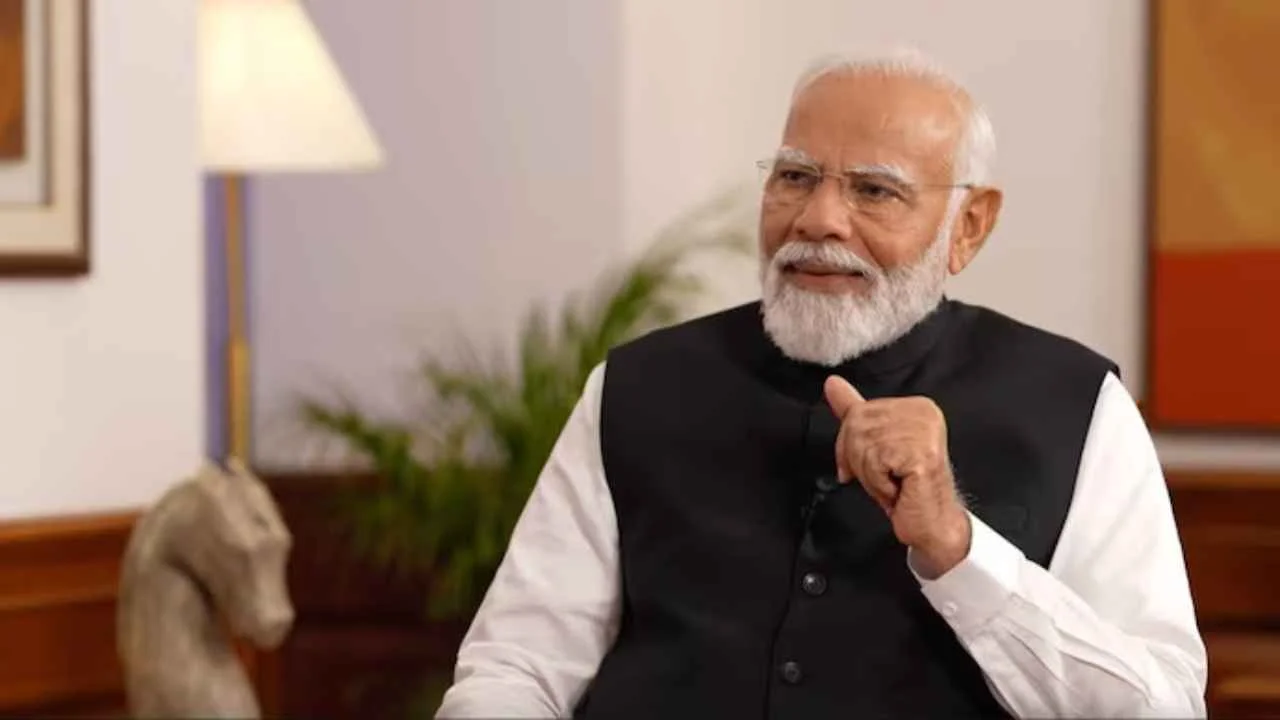
A day after the Bharatiya Janata Party (BJP) released its election manifesto, which aims at building a Viksit Bharat, Prime Minister Narendra Modi, in an interview with the media, outlined his vision for India’s development by 2047. He also addressed concerns raised by the opposition parties, who suggest that the BJP might seek to amend the Constitution if re-elected in the upcoming Lok Sabha elections.
Prime Minister Narendra Modi gave his assurance to the people that they do not need to fear when he said that he has big plans for the country in his election speeches. Explaining statement, the Prime Minister said that he does not mean to scare or suppress anyone, but rather has plans to make India a developed nation by 2047.
Speaking to the media, PM Modi said, when he says that he has big plans, no one should be scared. He said he does not take decisions to scare or run-over anyone, he takes decisions for the wholesome development of the country. He added the government always says they have done everything. He said he did not believe that he had done everything. He added he had tried to do everything in the right direction, yet there is so much he needed to do, because he saw that his country has so many needs.
The Prime minister asked how did he fulfill the dreams of every family? He said this is the reason why he said this has been a trailer. PM Modi said he had been working on the ambitious 2047 Viksit Bharat project for the past two years. And for that, he asked for opinions and suggestions from people across India. He said he had taken suggestions from more than 15 lakh people on how they want to see India in the coming 25 years.
India News
Kangana Ranaut meets Dalai Lama in Dharamshala shares pictures on social media ahead of Lok Sabha elections, post goes viral
The Bollywood actor met Tibetan spiritual leader Dalai Lama in Himachal Pradesh’s Dharamshala and said it as one of the most memorable moments of her life.
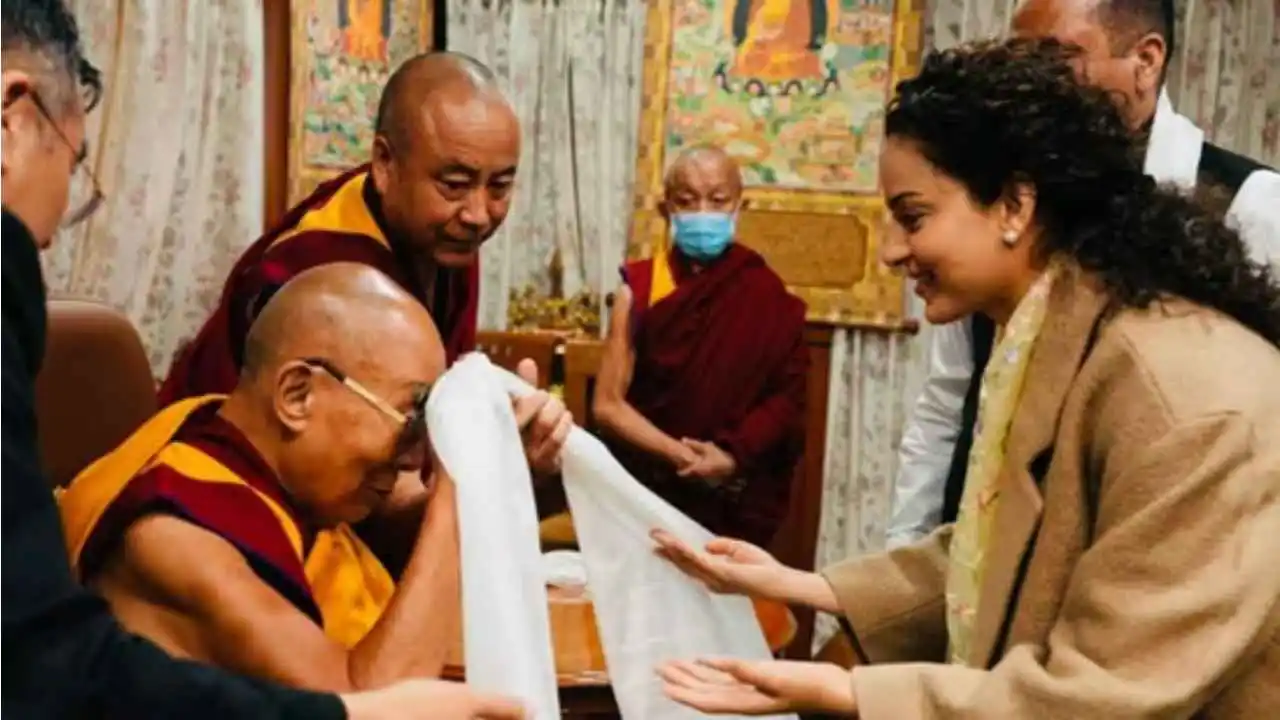
The Bollywood actor and BJP candidate for the Mandi Lok Sabha seat met Tibetan spiritual leader Dalai Lama in Himachal Pradesh’s Dharamshala on Monday. She said it as one of the most memorable moments of her life. Kangana Ranaut also shared pictures on social media.
The Lok Sabha elections in Himachal Pradesh are scheduled for June 1, marking the seventh phase of elections to elect four members of the 18th Lok Sabha. As the voting day is still over a month away, candidates contesting in the 4 constituencies are actively participating in various campaign activities. Among them, the BJP’s star candidate Kangana Ranaut, who is contesting from Mandi against Congress’s Vikramaditya Singh, is leaving no stone unturned to win the votes of the people.
Kangana Ranaut also shared what Dalai Lama told her during the meeting. She said, his Holiness ji said that he enjoys being in Himachal Pradesh and absolutely loves Bharat. She said this is such a privilege and such an honour. After her meeting with the spiritual leader, the actor told the media that it was divine. She said it was an experience which she will cherish all her life. She thought it is exceptional to be in the presence of such a being who has sheer divinity around him. She said it was very emotional for her and ex-CM Jairam Thakur. She added she will cherish this experience all her life.
Earlier, Kangana Ranaut slammed Himachal Pradesh minister Vikramaditya Singh for calling her the queen of controversies while she was addressing a poll rally in Mandi. She said, Yeh tumhare baap-dada ki riyasat nahin hai, ke tum mujhe dara, dhamka ke vapis bhej doge. She further added this is the new Bharat of Prime Minister Narendra Modi, where a small, poor boy who used to sell tea is the biggest hero and pradhan sevak of the people.
India News
Election Commission records highest inducement seizure of Rs 4,650 crore ahead of Lok Sabha election
The Election Commission of India records highest inducement seizure of Rs 4,650 in 75-years of history.
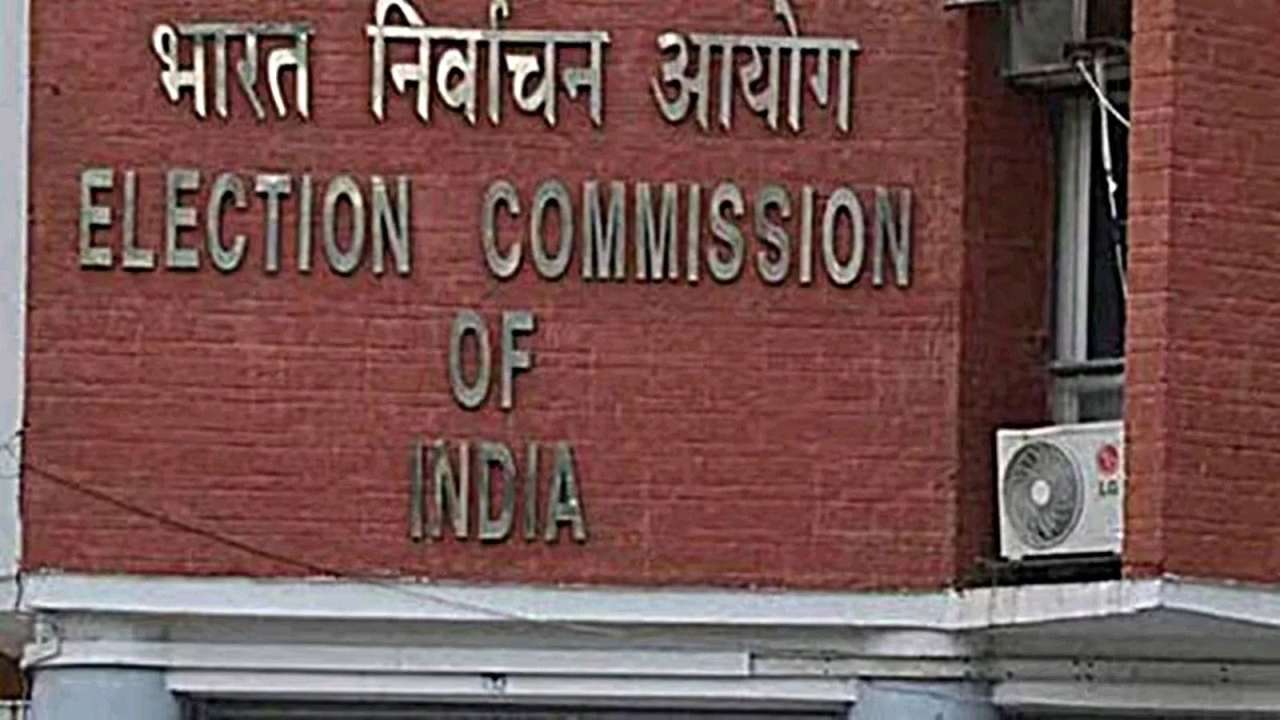
The Election Commission of India (ECI) announced on Monday that the upcoming Lok Sabha elections are expected to witness the highest ever seizures of inducements.
According to a notification from the poll board, enforcement agencies had already seized a record Rs 4,650 crore before the first round of polling, which is yet to start. This was a significant increase over the Rs 3,475 crores seized during the entire Lok Sabha election in 2019.
As part of a level playing field, the Election Commission said that the enhanced seizures reflect ECI’s unwavering commitment to monitor inducements and curb electoral malpractices, particularly in favour of smaller and less resourceful parties.
Significantly, narcotics and drugs, which are the Commission’s main focus, account for 45% of the seizures. The poll body continued, the seizures have been made possible by thorough planning, increased cooperation and coordinated deterrent action by agencies, proactive public participation, and optimal use of technology.
The commission also made statistics on the distribution of inducements that were seized available for public consumption by state. With a seizure of over Rs 778 crore, Rajasthan topped the list. Gujarat came in second with Rs 605 crore, and Maharashtra came in third with roughly Rs 431 crore.
When announcing the polls last month, Chief Election Commissioner (CEC) Rajiv Kumar highlighted money power as one of the 4M challenges, along with money, muscle, misinformation, and Model Code of Conduct violations.
Use of black money, over and above political financing and accurate disclosure thereof, may disturb the level playing field in favor of a more resourceful party or candidate in specific geographies, the panel stated in its statement released on Monday.
The poll authority claims that the seizures are an essential part of the ECI’s resolve to hold fair elections for the Lok Sabha that are free from electoral malpractices and inducements.
-

 Cricket news23 hours ago
Cricket news23 hours agoIPL 2024: Matheesha Pathirana takes 4 wickets as Chennai Super Kings defeat Mumbai Indians by 20 runs
-

 Cricket news22 hours ago
Cricket news22 hours agoJasprit Bumrah meets MS Dhoni in CSK dressing room, says felt good to catch up
-

 Entertainment19 hours ago
Entertainment19 hours agoJanhvi Kapoor shares Radhika Merchant’s bridal shower images, pictures go viral
-
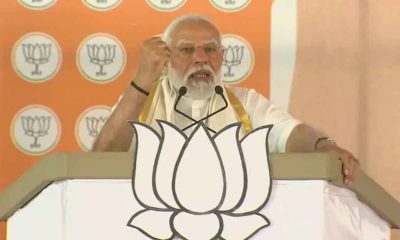
 India News17 hours ago
India News17 hours agoPrime Minister Narendra Modi says Kerala’s LDF and Congress-led UDF are deteriorating condition of the state
-

 Cricket news21 hours ago
Cricket news21 hours agoIPL 2024: Shah Rukh Khan wins hearts as he cleans up the sitting area at Eden Gardens, video goes viral
-
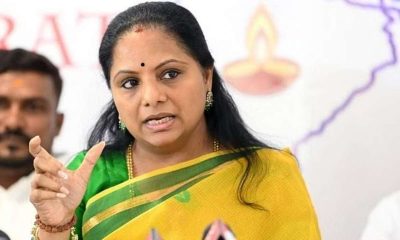
 India News23 hours ago
India News23 hours agoExcise policy case: Delhi court extends BRS leader K Kavitha’s judicial custody till April 23
-
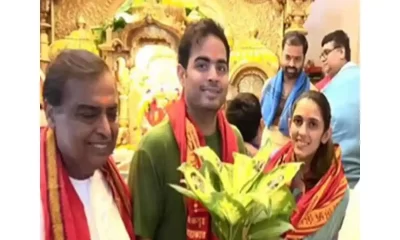
 India News20 hours ago
India News20 hours agoMukesh Ambani, son Akash Ambani and wife Shloka Mehta offer prayers at Siddhivinayak Temple in Mumbai
-
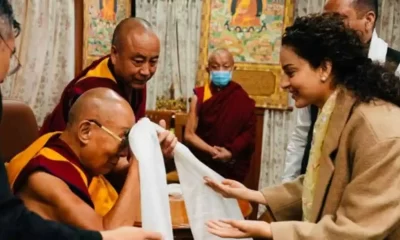
 India News16 hours ago
India News16 hours agoKangana Ranaut meets Dalai Lama in Dharamshala shares pictures on social media ahead of Lok Sabha elections, post goes viral







